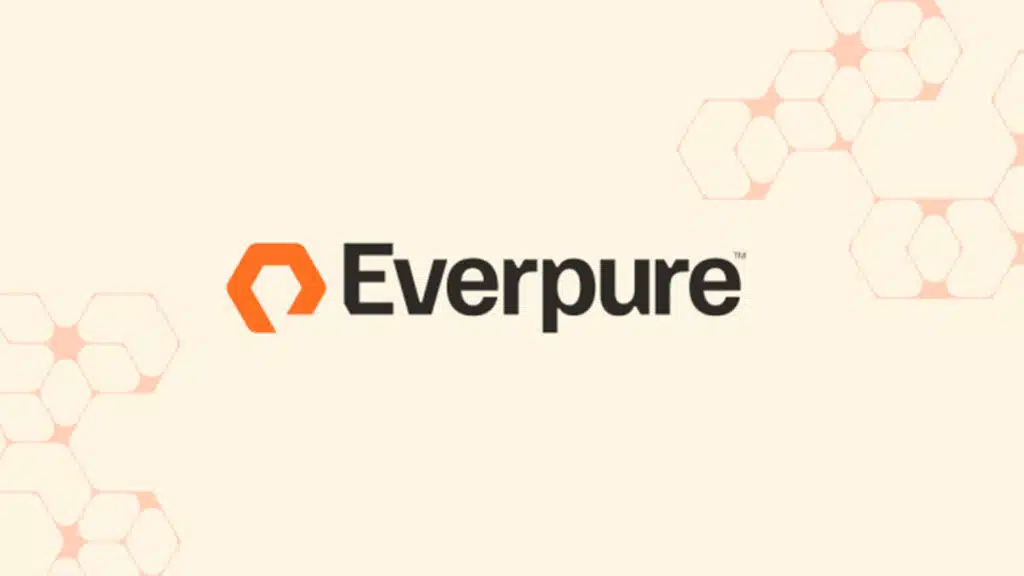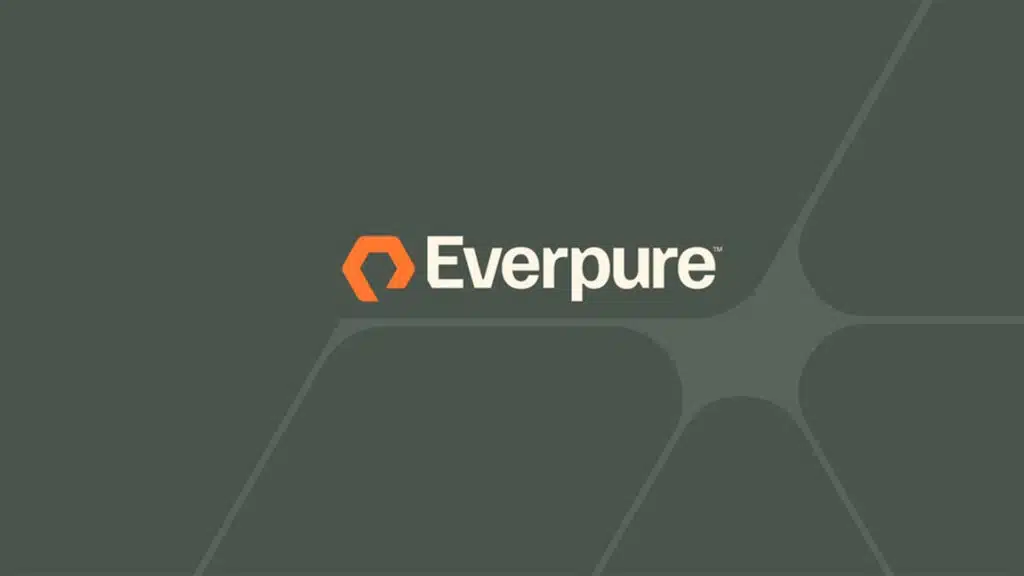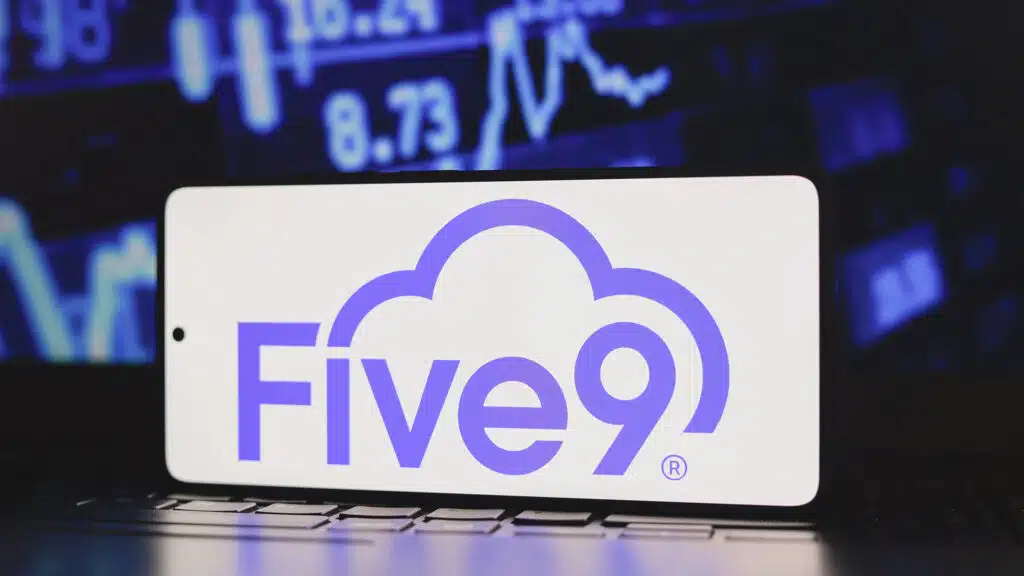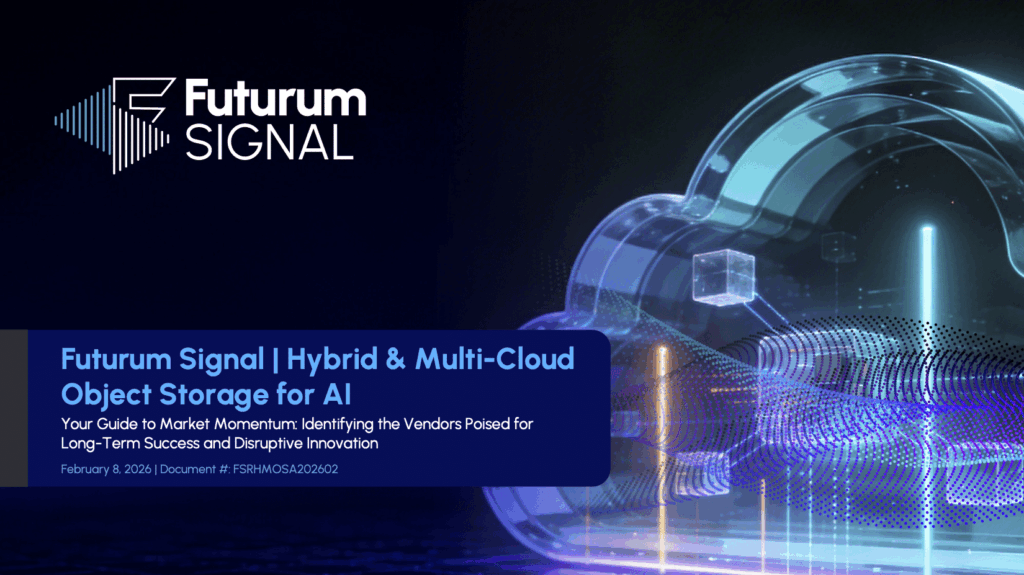On this episode of the Six Five On The Road, hosts Dave Nicholson and Lisa Martin are joined by Rackspace‘s Hannah Duce, Director of Strategic Alliances, for a conversation on the company’s latest collaboration with Dell. This partnership marks a significant step forward in providing cutting-edge solutions to customers, leveraging the strengths of both Rackspace and Dell technologies.
Their discussion covers:
- The strategic partnership between Rackspace and Dell and its implications for the market
- The introduction and potential impact of Rackspace Private AI on businesses
- Insights into how this collaboration will influence future tech solutions
Learn more at Rackspace.
Watch the video below, and be sure to subscribe to our YouTube channel, so you never miss an episode.
Or listen to the audio here:
Disclaimer: The Six Five Webcast is for information and entertainment purposes only. Over the course of this webcast, we may talk about companies that are publicly traded and we may even reference that fact and their equity share price, but please do not take anything that we say as a recommendation about what you should do with your investment dollars. We are not investment advisors and we ask that you do not treat us as such.
TRANSCRIPT
Lisa Martin: Hi everyone. Welcome to Six Five On the Road from Las Vegas. This is Dell Technologies World 2024, the AI edition. I’m Lisa Martin here with Dave Nicholson. Dave, we’ve been having some great conversations the last couple of days.
Dave Nicholson: Yes, we have.
Lisa Martin: It’s always impressive and exciting to hear and see the depth and the breadth of Dell and its partner ecosystem. We’re going to be digging into that again with a guest that you and I know.
Dave Nicholson: Yes, we do.
Lisa Martin: Please welcome Hannah Duce to the program, Strategic Alliances Director at Rackspace. Great to see you again. Hannah. Thank you for joining us.
Dave Nicholson: It’s been a while.
Hannah Duce: Yeah, of course. I know. It’s fun to be back. A couple of years I guess.
Lisa Martin: So let’s, give us the overview. Dell and Rackspace have been partners since I believe 2016, quite a while now. Really focus on providing a very comprehensive set of solutions, cloud, managed hosting IT services to customers. Give us the lay of the land. Here we are in 2024 or Dell’s, A.I. era as they’re talking about it. What has the evolution of the partnership been like?
Hannah Duce: Oh gosh. Okay. So Dell is probably one of our longest, longest partnerships that we have in the history of Rackspace. We started back in 1998. Fast-forward through Dell’s been underpinning our private cloud offerings in our data centers, bare metal, all of those things in the storage for many years. So strong partnership there. We’ve really grown into partnering through verticals as well. So healthcare being a strength of ours where we’ll manage full Dell stack running Epic, and then we manage the application all the way down through data center, everything.
So that’s been a tight alignment in recent years as we move into the A.I. era, as you mentioned, we recently launched our A.I. platform that leverages Dell and Nvidia’s validated designs for A.I. And that is rolling out in a handful of phases. So what we started with was A.I. anywhere really bringing AI to the customer and wherever they might need it or want it, whether it’s in their premise, whether it’s on Colo or whether it’s in a Rackspace data center. So just kind of working through that and evolving as this industry changes with A.I. and the fast moving pace that it is.
Lisa Martin: The pace has been crazy. I mean, what’s chat GPT, 18 months old? And Dave was moderating a session yesterday where he shared a slide that shared that chat GPT got to 1 million users in five days compared to a Netflix, which was-
Dave Nicholson: 1,721 days.
Lisa Martin: Yes. So the speed and acceleration, it’s at breakneck speed. But you talked about A.I. anywhere that was only launched in January just a few months ago. Talk about how that is enabling organizations to really harness the power that A.I. and machine learning can deliver, but in a secure way, because security is incredibly important.
Hannah Duce: Yes. And so that’s what we’re seeing a lot of. I just read an article the other day talking about repatriation and private cloud and it’s back. Thanks AI, driving a lot of that. I mean, you’ll see it in the policies in your own companies of what tools you’re allowed to use where you put your own private data into some, whether it’s Chat GPT or Copilot or whatever it might be. And so what we’ve seen is that need, whether it’s sovereign services in certain countries, it needs to stay there. It needs a private environment, whether it’s just due to compliance issues around patient data, things like that.
So what Rackspace is enabling and providing the arms and legs around what Dell and Nvidia have as validated designs is really that ability for a customer to consume this in more in an Op Ex way so they don’t have to lay all the cash who’s got all that cash up front. Even with Rackspace, they can even test it in our demos, our demo environments that we have. They need to test their data, see if this is really the business case, the route they want to go, before they move on to production, and then able to consume it in a more friendly manner to the business so they’re not having to put out the millions that it requires. So hopefully that helps. And then all of that obviously wrapped in inheritable security controls that Rackspace has come up with over the years and then implemented into our AI platform as well.
Dave Nicholson: We have a colleague, Keith Townsend actually was here a moment ago, founder of CTO Advisor, and he has been a champion of the hybrid cloud for quite a while. And it has been interesting to see. You mentioned repatriation. As we enter this world of AI, people are becoming increasingly concerned about having their crown jewels reside in frankly, hyper scale cloud providers. Is it fair to say that you sort of fit in that middle area where it’s, Hey, I don’t want to buy stuff on prem, I want help managing it, I want validated designs, but I want it to be mine and private in the sense that it’s not connected to everyone else. Is that something that you see growing in demand over time?
Hannah Duce: Yes, we have definitely seen that. I mean, we started in that space before hosting was really a thing and kind of helped build that space. And so now you kind of see these three locations, you can have it over here in Hyperscaler and now I’m hearing the word micro clouds emerge, custom clouds, things like that. So you can have it in this more public centric area. You can have it in a hosted environment where I like to think of it as we’re able to build a customer their cloud. And so it’s truly a cloud model for them, but customized to their need. And that’s something that Rackspace can specialize in and we do. And then you’ve got on-prem, which customer can do it too. But what we hear a lot of is I don’t want to go, especially if they moved out of the data center, I don’t want to go build a new data center.
I don’t want to go buy a data center. I don’t want to handle all of that. So it kind of fits right in that sweet spot in the middle. If they still have on-prem, then we can connect back into the on-prem as well. We can also connect into Hyperscaler. So through our evolution, what’s built up is kind of the secret sauce that we call RackConnect Global, and it’s the ability to really connect all of these clouds together wherever they might be and create a multi-cloud hybrid environment. And if customer wants, we can manage that whole thing or just a section of it.
Lisa Martin: What do most customers want? When you talk about healthcare, for example, and life and death situations, personal information, are customers in healthcare, for example, where are they on that spectrum of on-prem, multi-cloud hybrid? Is there a generalization that you see by industry?
Hannah Duce: I would say so. I mean, I would say in healthcare, if you think about hospitals, providers like that, you see a lot of on-Prem still, there may be some applications, SaaS applications, things like that, that are in public cloud and you’ll have some of that, or they’re looking at it. We hear a lot of we’re evaluating this or looking at, and frankly it’s Azure, Azure’s kind of prevalent in that space it seems like right now, and a high interest there. But a lot of it’s still on-prem and we think about medical imaging or things like that.
It’s going to have to stay there. And all of the devices that are there, there’s an edge play, a huge edge play that’s going to stay private, but it’s localized there. So imaging’s got to be there, but then you need all your data retention. So we’re going to put all that data for forever and ever, basically. Is that going to grow in a hyperscale cloud? Perhaps. And people are looking at that and some are doing it, but I would say a large majority’s still on-prem and they’re looking at ways to move that out.
Dave Nicholson: It’s interesting, I think that if usually the first iteration of what we expect is going to happen when a sort of revolution is underway, we think that things are going to consolidate, jobs are going away. We’re all going to be either working for Amazon or Walmart and that’s it. And then somehow or another, a sort of new economy emerges around these things. I was having a discussion with someone the other day about a high-speed rail system that went in between two cities and China. They thought it was going to put a bunch of people out of work. It created this incredible thriving economy around this new idea that you could now deliver things within an hour and a half that took 10 hours before.
So at first glance, you might say, well, wait a minute. The AI revolution means massive training clusters that only the hyperscalers can possibly produce. Therefore, everything on-prem, everything in a sort of mid-size MSP provider of services like you would be under assault. But do you feel like that or do you see the opportunity that’s there? It feels like there’s opportunity. We’re walking around here and it doesn’t feel like everything is narrowing in only one direction. For example, the NVIDIA direction. It’s not all going in just one place. It’s really kind of the rising tide is lifting all ships. Do you feel that at Rackspace because you should. I’m trying to be encouraging.
Hannah Duce: Thank you. Yes.
Dave Nicholson: Is there a question? Should I just ask a question?
Hannah Duce: I agree with you. Yeah. I mean, I feel like we’re seeing a pivot in maybe where we’re focusing things and trying to learn where is the right opportunity, where is our strengths? Where do we lend our strengths? If you look at what we’re talking a lot about around AI is if we take healthcare again, for example, and we think about our ability to offer demo labs in this space to really incubate in some ways. So we have a services’ framework, it’s called FAIR, Foundry for AI by Rackspace. And it basically started, the reason that it was launched is what we saw a need for is customers need to know how to continue that journey. I know I’m supposed to do something, but what?
And so then the process is ideate, help them ideate, build the business case, get into incubate. Where are they going to incubate? Where are they going to test this? And so then we can provide that. And then industrialize, what from the incubation stage are we actually going to go make live, really see an ROI from? So absolutely agree with you. I mean, you see these deals out in the news of just gigantic hardware deals for whether it’s GPU as a service offerings or LLM training models. But the reality is, or what we’re seeing more of is well, that’s come really fast and furious. Now you’ve got this inferencing game.
Dave Nicholson: Yes.
Hannah Duce: And that’s where the ongoing, that’s really where we want to be is inferencing fine-tuning, and helping keep that data safe and really help train it on the customer’s specific data sets and getting the data right that goes into it.
Dave Nicholson: And this isn’t Rackspace’s first rodeo.
Hannah Duce: No.
Dave Nicholson: I mean, you were a bit at the front end of creating these cloud environments, call them private hybrid cloud environments in the sort of VMware, the dawn of the age of VMware context. So this seems to be a natural extension in the world of AI.
Lisa Martin: You talked about the evolving customer journey and how things are evolving so quickly. I’d love to understand, given that how have customer conversations changed in of the level of folks in organizations that are now really key to trying to figure out where do we place the data? What’s the use case? How do we get access to it quickly? Have you seen shifts in terms of the actual sales cycle?
Hannah Duce: Oh, actual sales cycle. It’s still fairly lengthy. Usually, I would say the conversation’s shifting a little bit as people are now starting to wrap their heads more around what does this maybe mean? One thing that’s been common, and now we’re just seeing it more pointedly, is building that business case. Because you got to have the ROI around whatever you’re going to go invest in. And so really helping them build out, okay, what’s the focus area? How do we build on one, get it to a place that it’s running, and then we can go back and you can come up with use cases. I feel like that’s where we started was what are all the use cases?
And our use case library went to like 600 in no time. Now it’s way above that. And so you can come up with the use cases, but it’s building the business value around that. That makes it make sense. And then you’ve got a resource constraint always. So where are those resources going to come from? Can you hire for them fast enough? Are they in the right place? And so that’s one of long standing Rackspace’s value props is the ability to provide resources in an area where we have some expertise to an organization. So they don’t have to fully staff for all of that out of the gate.
Lisa Martin: But you’re spot on with the proliferation of use cases, which can just go on and on, is the business value is paramount for organizations to understand the impact, the ROI, the TCO. When you look at the horizon, we talked about how long Dell and Rackspace have been partners. What do you see on that frontier?
Hannah Duce: That’s a great question. So I see a lot more vertical solutions coming into play. So Rackspace is great at the horizontal. I mean, we can kind of do anything when you go across that. But the verticalization helps us focus and really speak to business outcomes specific to that area. So I think tighter alignment there and how we’re going to market, how we’re speaking to our customers, aligned in verticals and specific challenges there. I think you’ll continue to see more around AI as we launch more offerings. So we have about three others on the roadmap that are shortly, they’ll be more word about those.
So that will definitely be a focus. I think this open ecosystem, Rackspace is about customer choice. We want to offer our customers choice, meet them where they’re at. I think that aligns well with what Dell’s saying as well. But we have a long-standing history in Open Stack, and so building around the resurgence of some of that and interest in that. Yeah, so I think those are few different producty areas that we’ll go. And then the outcomes around targeted verticals and perhaps ISVs, things like that.
Lisa Martin: We’ll keep our eye on verticalization. We’ll keep our eye on from what’s coming out from an AI perspective and those business outcomes that you guys are enabling customers to achieve. Hannah, thank you so much for spending some time with us on Six Five on the Road.
Hannah Duce: Awesome. Thank you all so much.
Lisa Martin: Our pleasure.
Dave Nicholson: Good to see you.
Hannah Duce: Yeah, you too.
Dave Nicholson: For Hannah Duce, Dave Nicholson, I’m Lisa Martin. You’re watching Six Five On the Road from Las Vegas, covering Dell Technologies world, 2024. Dave and I will be right back joined by a couple of guests in just a moment.











